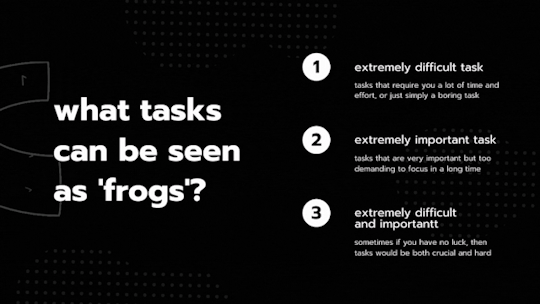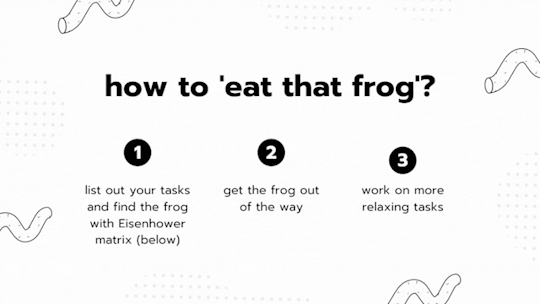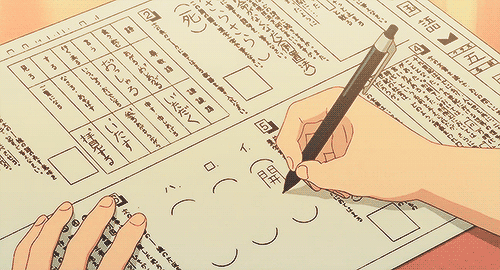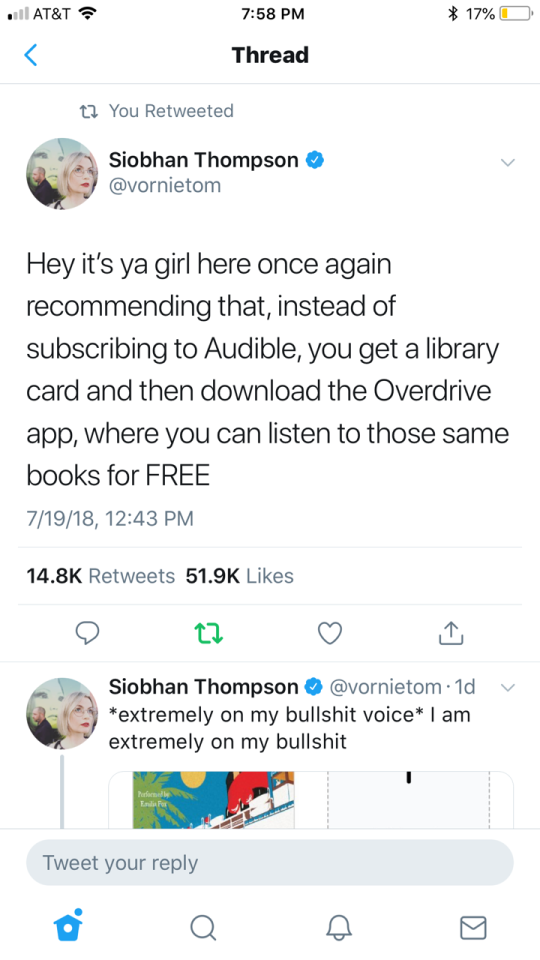dante • 18 • studyblr/premed • obsessed with heroes, medicine, and everything in between • tracking: #dantesnotes • mobile links
Don't wanna be here? Send us removal request.
Text
20 important study skills/tips i’ve learned from my professors
1. start studying a week before every quiz/test. seriously.
2. watch youtube videos/ted talks on the topics you are learning about.
3. get lots of sleep! sleep helps you process the day’s events, including what you learned.
4. write out your notes. it’s proven that handwritten notes help you learn better than typed out notes.
5. don’t just read what your professor gives you. find academic journals, books, etc. that correspond with your subjects.
6. read the news! especially in the social sciences/humanities, connecting concepts with current events helps you understand and process more easily.
7. exercise! this doesn’t have to be going on runs or lifting weights, it could even just be going for a 20 minute walk. just get your blood pumping, it’ll help you focus.
8. study at your desk. it may be tempting to study in bed, but your brain connects your bed with sleep, so you’ll get tired more quickly.
9. reviewing notes doesn’t have to be something you sit down and do for an hour. skim through them and test your memory while eating breakfast!
10. expand your study time throughout the day to avoid burnout. for example, rather than studying for 5 hours straight, study for an hour here and there in between your activities.
11. make your notes organized and easy to read, but not distracting. bright colors and flashy notes may seem better, but can sometimes distract from the purpose of the notes.
12. use apps such as quizlet. this way, you can go through definitions while waiting in lines or walking to class.
13. it’s more important to know concepts rather than facts. for example, you should be able to take what you know and apply it to different situations, not just the situation the textbook gives you.
14. just because the professor doesn’t require you to read textbook, doesn’t mean you shouldn’t. it helps explain concepts in a different way than your professor, and a lot of times hearing two different explanations for the same concept helps you understand it.
15. read in advance. read the textbook before your professor begins going over the chapter, so when he/she does, you can easily follow what they are saying.
16. do any extra credit work that comes your way. even if you don’t need the extra boost now, you might later.
17. go to class!! if you always skip class and show up at office hours completely lost on the concepts, they’ll laugh in your face. they’ll take you 100x more seriously if you show up.
18. however, if you are sick, take a day off. it’s more beneficial to you in the long run.
19. learn how to say “no”. if you have an 8 am the next day, don’t stay out until midnight with your friends.
20. don’t stress too hard over quizzes. if you expect them to go horribly, they will. you got this.
35K notes
·
View notes
Text
‘eat the frog' method







Hi all, it’s werelivingarts. I just stumbled across this method called ‘eat the frog’, which means you get the most difficult or important task out of your way first. I actually have been using this method for a long time, hope this post gives you a new way of managing your time and productivity! 😜
“If it’s your job to eat a frog, it’s best to do it first thing in the morning. And if it’s your job to eat two frogs, it’s best to eat the biggest one first.” – Mark Twain
40K notes
·
View notes
Text
biology resources
so i’m making this to help out my classmates with our biology final and i figured i might as well post it on here too!
tips and advice
highschoolering’s bio study tips
fighttostudy’s advice
how to get an a in bio
more on how to get good grades in bio
resources
sparknotes study guides
crash course biology
khan academy
brightstorm
bio corner
science news
cliff notes
this whole site
cells
explore the inside of a cell
another interactive cell
build a cell
specialized cell simulation
the cell game
cells under a microscope
cellular respiration + photosynthesis
an intro
glycolysis
the krebs cycle
electron transport chain
fermentation
an animation of cellular respiration
photosynthesis interactive video
a photosynthesis game
photosynthesis simulation
photosynthesis song
mitosis + meiosis
mitosis simulation
interactive mitosis thing
mitosis game
meiosis simulation
interactive meiosis thing
mitosis song
body systems
heart song
respiratory system song
digestion song
nervous system song
post about the nervous system
misc
prokaryotes vs eukaryotes
protein synthesis simulation
dna song
enzyme song
brain anatomy
kidney anatomy
more posts
studygene’s biology review masterpost
this massive post of bio resources
and this one
there’s a lot more stuff too if you just go to studentcombeferre.tumblr.com/tagged/bio and hmu if you can’t find anything!!
4K notes
·
View notes
Photo

My “Biology Review Masterpost” is a going to be a little different from my usual master posts. Instead of giving you a general overview of what you need to know, I will be dividing the master post into 4 different posts, each focusing on specific things that you might need to know. I’m trying something new out with this master post since Biology is such a reading heavy class and most students don’t know what exactly to focus on when they are studying.
General tips on studying Biology:
Biology is a very visual learning class. Making diagrams, flow charts, etc. is essential in studying this subject.
Go from general understanding to applying to specific examples. Labs are your best friends in this class.
Do past exams. See if you can explain and write why your answer is the right answer with sufficient details.
Read test questions carefully. It will mess you up if you don’t.
Pay attention in class and take good notes. Be active in learning.
General Knowledge
Understand the importance of water.
Water (Crash Course Video)
Know the different types of bonding and interactions as well as how to identify them: ionic, polar covalent, non polar covalent, hydrogen, van der Waals.
What makes carbon so special?
Carbon (Crash Course Video)
Know your functional groups and their properties (acidic/basic/neutral, solubility in water, polar/nonpolar, structure): amino, sulfhydryl, phosphate, methyl, hydroxyl, carboxyl, carbonyl.
Know your major biological/organic macromocules: carbohydrates, lipids, proteins and DNA.
Biological Molecules (Crash Course Video)
Memorize your amino acids and it’s properties of acidic, basic, polar, non polar side chains. Mnemonic device’s are great for these!
Remember, all amino acids have the same amino group and carboxyl group, with different R groups.
Know the difference between purines (A and D) and pyrimidines (C, T, U), and the difference between RNA (sugar is ribose, single strand) and DNA (sugar is deoxyribose, double stranded).
DNA goes from the 5′ to 3′ antiparallel direction.
The 5′ end has a phosphate group attached to the 5′ carbon.
The 3′ end has a hydroxyl group on the 3′ carbon.
Know basic membrane structure and functions.
Know the importance behind the fluid mosaic model.
Membrane molecules are held in place by relatively weak hydrophobic interactions and van der Waals interactions.
Know what can influence membrane fluidity: temperature, presence of unsaturated fatty acids vs saturated fatty acids, and cholesterol.
Know the proteins embedded in the bilayer: integral proteins, peripheral proteins, etc.
Understand different types of diffusion, active transport, what molecules can easily go through the bilayer membrane and what needs a protein transport (sodium pump, aquaporins, etc.)
Other Resources:
Openstax College Biology Textbook. The PDF format is free.
Khan Academy for Biology
Crash Course Biology is informative and entertaining! Hank Green does a great job of explaining dense materials with good animations and in a short amount of time.
Biology Questions & Answers
Biology Review Videos by Brightstorm
Learn Genetics by University of Utah has interactive lessons on biology-related material, and the graphics are pretty nice!
CliffNotes AP Biology is a great resource/review book if you ever feel like needing a quick refresher on Biology without the extra hassle of a textbook. *I am pretty sure there is a 3rd edition of this book in PDF floating around on the Internet for free.
3K notes
·
View notes
Text
ADHD study tips!
I may not be the most accomplished student, but I’ve been slowly finding what works for me. The following advice probably applies more to the “inattentive” and “combined” subtypes; the former is my diagnosis. Also, it is probably applicable more to science/maths than humanities.
* Follow your nose - set an outline for what you want to cover in a certain period of time and don’t force yourself to do any one thing in particular
* Embrace nonlinearity in your notes - don’t force yourself to make them exceptionally neat & compartmentalised; scribble your ideas down and use arrows to connect things together
* If you have an idea or a question, investigate it yourself - make a mathematical model of the system, visualise it, etc
* Prove the theorems in the textbook rather than doing the (boring) exercises - this really helps with understanding, and also develops your mathematical skill
* Look at more material than the course requires - this makes studying feel worthwhile, because you’re actually beginning to understand
* If you’re hyperfocusing, don’t force yourself to take a break! Wait until your concentration starts drifting and then get outdoors for a bit. I find that studying in anything less than a 1.5h session is pointless because I don’t get immersed enough to make deep connections.
* Get a fidget toy - it can make concentration much easier, even without medication.
3K notes
·
View notes
Text
i’ve compiled a huge google drive folder of anarchist, socialist, feminist, anti-colonial, anti-imperial books+ essays, crip + disability theory, queer theory, critical race theory, film theory, transnational + diaspora trauma study essays, and writings that combine all of the above
some essays i’ve got from school, most of the books and some essays r from beautiful people on the internet
to be updated as often as i get more shit. which is fairly often~
88K notes
·
View notes
Text
PLANNING 101
A student tested guide to planning your shit

Yes, I’m back after months of absence. I’ve been horribly busy this summer, I started my internship, had to do some certifications and even started working as a freelance marketer aside from that. So, you can just imagine how many things I’ve gotta do. And I have to say what truly saved me, is planning properly. So these are the best practices I’ve learned that have saved me from going crazy. This method consists of 3 stages: Overview, Planning, Reviewing. In the end, I will also list some good practices that can help you plan better.
Overview Stage
For this first stage, I rec you to grab a piece of paper and just jot down these things. Don’t write them directly on your calendar, with the exception of deadlines.
1. List your deadlines first. Starting with the deadlines is the easiest given the fact these are likely not to change dates. Include here things like presentations, exams, meetings. Also, do yourself a favour and list the expiration date of legal documents like ID, passport, license and such because most of us don’t do that and realise too late when its already expired.
2. List your required tasks and the time it takes to finish. These are mundane things like cleaning, cooking, and other chores you usually do on a daily or weekly basis. Also, write down how much time you spend doing these things and when you usually do them.
3. List things you do in your free time. This one is pretty straightforward: going out with friends, watching a movie or series, reading and whatever else you like to do in your free time.
Planning Stage
1. Analyse. This is the most crucial part of the entire process so you have to pay close attention here. Deadlines are our number 1 priorities, and likely the ones to give us more stress. So we want to start with those first. Ask yourself questions like how long it will take you to complete a certain project? How hard will it be to complete this before the deadline? Is it time-consuming? Is it a group or individual project? If it’s a group project, keep in mind you should leave some time open for meetings and such. Talk to your teammates if you are going to meet, if so when and where.
2. Set weekly goals.
Shit might happen and you may not complete your daily tasks and such. Which is why I prefer setting weekly goals. As the week progress, I schedule my tasks. I don’t like planning specifically every detail for more than 2 days, as shit might happen today or tomorrow or maybe I’m in a whole different mood and therefore do schedule my daily tasks in more detail the night before. I’ve noticed it makes me feel less stress and I have better control over what I can do instead of what I want to do in the day.
3. Don’t go nuts on the daily tasks.
We all would like to be productive af, and hustle with all-nighters and all so we can brag about how hard we work but man that ain’t healthy. At least, I know that shit doesn’t work for me at all. I set a maximum of 5 daily tasks. I’ve noticed that if I do more, chances are very high I won’t even finish my daily tasks and will get stressed instead. Take it easy. Don’t rush. Plus it gives me time to do other stuff after if I feel like it or if someone invites me to go out.
Good practices
1. Have everything in one accessible place. I used to have a bullet journal and couple it with a digital calendar. Worst idea ever. Somethings where here the other half was over there. It was truly a mess. Just pick one and stick to it. This way you won’t be losing information and everything, literally, everything can be seen at a glance. I personally prefer using a digital calendar because I always have my phone with me, and it helps me minimize the things I carry.
2. Try to plan ahead and for the worst-case scenario. Yes, you never know when shit may hit the fan so you better be prepared.
3. Reward yourself. There’s no point in working hard if all you’re gonna do is be fucking stress. Chillax. Watch some Netflix and distract yourself. Remember the brain needs some time to process things on its own. Just like you don’t like to be forced and instead end up doing nothing, let your brain work in its own rhythm. Don’t rush.
2K notes
·
View notes
Photo

Language Mistakes | Etiquette Mistakes
Hey guys, first off Happy New Year! I can’t believe it’s already 2017. I had a pretty great year last year, but I’m much more excited for what this year will hold for me! Graduating from university, moving to Japan, etc.! It’s all very exciting.
My first post for 2017 is going to be on common mistakes that foreigners make when speaking Japanese and when they’re in Japan! Language Mistakes:
Particles - I think a lot of Japanese learners struggle with particles and more often than not, end up using the wrong particle in their sentence. は and が are often misused by non-native speakers. When は is used the meaning depends on the context that it was used in (it usually has multiple possible meanings and you just have to figure out what the meaning is depending on the type of situation it was used). For example: 私は魚です can mean “I’ll have fish” when speaking to a waiter or “I am a fish” in response to a question about yourself. As for が, it can be used to exclude other possibilities and to lock in your answer so 私が魚です means “I am a fish”. Another example is the overuse of と which means “and” but it can only be used to connect two nouns together. If you wanted to connect multiple nouns together you would have to conjugate and use て form not と.
Using the word ‘あなた’ for “you” - in Japanese they don’t use pronouns such as 'you’ when addressing each other, this concept is a little hard for some Japanese learners to grasp and they use あなた in Japanese, just like you would use “you” in English, but actually it’s kind of rude to refer to someone as あなた in Japanese so please try to refrain from using it.
Intonation and Nuances - intonation and nuances are important in Japanese, for example there are some words that have different meanings but are pronounced the same. 箸「はし」means chopsticks and 橋「はし」means bridge. If you want to say chopsticks you should place more emphasis on “は”, and if you want to say bridge you should place more emphasis on “し”. Another example is “ええ”, depending on what kind of intonation you use it in, it can mean “yes”, “what?!”, or “must I?”. Some Japanese learners speak in a monotone voice but it’s important to use intonation to properly convey your message across.
Etiquette Mistakes:
Taking a phone call on a train or bus - making or answering a phone call and having a conversation is a common mistake that foreigners make in Japan. Being loud in public transport is rude in most countries but Japan takes this especially seriously, so don’t get caught out committing this social faux pas!
Blowing your nose in public - this might seem strange to us foreigners who are quite used to openly blowing our noses in public and hearing others do it (all throughout my schooling life I’ve had class mates blow their noses in the class room so I’m quite used to this), but in Japan you won’t see this happening. So try to avoid this as much as possible.
Not removing your shoes - I think a lot of people know about this by now, but when you enter someones home you have to remove your shoes. They’ll usually have quest slippers for you to use so you don’t have to walk around barefoot. Some Japanese restaurants might ask you to remove your shoes too, so make sure you’re always wearing matching socks ;)
842 notes
·
View notes
Text
here is a list of questions i have already answered about graduate school!!
please check it before you send me a question about graduate school :) :) i hope it’s useful! xo // updated 08.2019
basic info
what is the PhD and what can you do with it? (+)
what does a literature PhD entail?
should i do a PhD if i have to pay tuition?
does it look bad to take time off between degrees?
what was your timeline like?
what’s the difference between a terminal MA and a PhD? (+)
does getting an MA first help you get into a PhD program?
application process
how can i prepare for applying early in my undergrad career? (+) (+)
where should i start looking for programs?
should i choose a program based on rank or fit? (+)
how many programs should i apply to?
parts of the application
advice on the writing sample
advice on the GRE (+)
how should i ask for letters of recommendation?
how should i write a statement of purpose? (+)
how do i demonstrate my “ability to excel”?
how should i address mental health/family/personal issues that impacted my grades?
grad school application spreadsheet
how should i email potential advisors? (+)
how can i survive the waiting period? (+)
how should i prepare for an interview or phone call? (+)
what should i ask at open house?
what should i do if i don’t think i can afford my grad school tuition?
what should i do the summer before i start my program?
seminars/coursework
how should i plan for grad seminar presentations? (+)
what should i bring with me to seminars?
what are grad seminars like?
how can i get better at speaking during seminars?
reading
what should i have read before i start my lit grad program?
how much reading should i expect?
how can i read a lot without getting overwhelmed? (+)
how can i read efficiently? (+) (+)
quals-specific reading advice
how should i take notes on critical articles?
writing
how do i write a lit review?
how do i write an indicative bibliography?
how do i choose a dissertation topic? (+)
how do i plan for a long research paper?
how do i balance all the different kinds of writing i have to do?
money
how do finances work in grad school?
what is adjuncting and why does it suck?
how can i budget while on a stipend?
should i work while in grad school? (+)
fellowship, postdocs, & job stuff
how do i think up a second project when i’m not even done with my dissertation?
CV writing tips
which websites post US fellowship/postdoc/job ads?
how do dissertation fellowships work?
tips for grant, award, & fellowship applications
misc
will grad school make my mental health issues worse? (+)
how do i survive conferences?
how should i deal with burnout? (+)
i think i want to quit
my advisor is ghosting me
how do i work with no structured schedule?
how do i get enough sleep?
how do i balance my work & my teaching?
how can i beat imposter syndrome? (+)
how can i excel in grad school?
6K notes
·
View notes
Text
hottest language learning tip
write a diary
literally
just write a diary, it has helped me sooo much and i dare say it has been the most developing thing i’ve done while learning french, nothing else compares
1. you’re exposed to the language daily
2. you quickly see which words are missing from your vocabulary
3. you learn to write about the things you think about a lot
4. learning to actually think in your target language
5. having to look up words and when reading the entry back a couple of days later you can’t even remember which words you didn’t know
6. going back to the earlier entries and seeing all the mistakes and knowing how much better you’ve become
7. when you’ve been writing for a few months and your target language becomes a natural way for expressing yourself
8. when you’ve been writing for a few months and you start seeing the diary writing as a way of self-expression and stressrelief, and the language learning aspect becomes natural and secondary
9. filling out a whole book using only your target language and physically seeing how much you’ve accomplished
38K notes
·
View notes
Note
hello there! i would like to ask if you know any sites where i can practice reading japanese? like news sites, manga sites, or sites that offer free e-books that are in japanese. and are there any japanese podcasts that i can listen to? thank you in advance for answering this question. it'd mean a whole to me!
Hey there! There are actually quite a few recommended sites for Japanese learners, so I’ll link them right now :)
Japanese IO – I’ve used this site quite a few times and I love the interface! The design is really sleek and “to the point,” so there’s no distractions from what you’re trying to do, which is practice reading Japanese. It also has a great library and look-up feature.
朝日学生新聞社 – This is the “kid’s version” of the more adult 朝日新聞社. If you don’t feel that you’re quite up for the adult version, test out the version geared towards kids. They have fewer articles, but there’s plenty for a learner to pick through.
NHK NEWS EASY – I’m almost positive this is one of the most famous ones for learners. It’s similar to Asahi’s kid newspaper – articles are condensed with easier kanji and vocabulary, and it’s geared towards children, so learners can spend some time combing through updated articles and testing their skills.
Yahoo! Kids – More short news articles geared towards easier-to-understand Japanese.
MATCHA – A fun magazine similar in style to NHK EZ.
Watanoc – Another magazine-type site with a variety of articles.
Traditional Japanese Stories – Get your hands on some easily printed Japanese stories that are told to children. Great for language skills and culture! Similar to English pop culture stories (like Cinderella and so on), Japan has its own fairytales that are occasionally referenced.
Fuku Musume’s Fairy Tale Collection – More stories!
World of チョコチョコ – These are beginner stories, but as you progress you can read other stories on this website.
EhonNavi – Read hundreds of Japanese picture books for free!
If you’re looking for more advanced content…
NHK – Japan’s national broadcaster. You can read articles as well as stream audio and video (may be blocked depending on location).
毎日新聞 – Moderate/left-leaning national newspaper
朝日新聞 – Left-leaning national newspaper
読売新聞 – Conservative national newspaper
東洋経済オンライン – A well-known business and finance magazine.
Project Gutenberg (Japanese) – Get access to a ton of out-of-print and classical books for free.
小説家になろう – A site where authors can publish their works online in exchange for reviews.
青空文庫 – Another site where you can get older and out-of-print novels.
University of Virginia Japanese Text Initiative – Another place to access novels in Japanese for free (with the option to read them with furigana).
ComicWalker – Free manga from the publisher Kadokawa. There’s an app too!
最前線 – You can read some manga online for free.
コミコ – More free Japanese manga available here!
キナリノ – A woman’s lifestyle blog which covers fashion, cooking, decor, and more!
Magazine Lib – You can read PDFs of Japanese magazines.
1000文字小説 – A place where users can submit 1000 characters or less stories.
I also highly recommend starting a Twitter (if you don’t already have one) and following Japanese accounts. I follow a lot of feminist and political accounts so that I’m learning words relevant to my interests, as well as interacting with people that are discussing topics of interest to me (i.e. women and their place in Japanese society).
If you’re curious, you can find me on Twitter at @sydney0313 :)
I hope this list proves useful to you! (And others.)
頑張ってください!
6K notes
·
View notes
Text

Resources
Book collection for Japanese ↑
N3/N2 shin kanzen master series
where I bought things↓:
amazonjp (or your locals amazon)
cdjapan (cheap items and shipping)
Online resources that I use ↓:
Memrise - flaschards + vocabulary
Quizlet - flaschards + vocabulary
japanese class - vocabulary + kanji
Imabi - Grammar from beginner - classical
Tae Kim’s Guide - Grammar from N5-N4 with a little of other levels
Jtest4you - N5 -N1 grammar and vocab, both recap and tests
happylilac - elementary/ mid school kanji practuce/test sheets
Comic walker - free manga in japanese
Apps↓:
Takaboto (dictionary)
TangoRisto (news articles)
Poro Japanese Grammar (N5-N1 grammar with tests)
Poro Kanji Study
Lingodeer (like duolingo)
Flip study- focus timer for study
Anki
Bunpo (JLPT lessons and questions)
Youtube↓:
Japanese Ammo with Misa
日本語の森
869 notes
·
View notes
Text
Know what I’m salty about?
In all my art classes, I was never taught HOW to use the various tools of art.
Like yes, form, and shape and space and color theory and figure drawing is important, but so is KNOWING what different tools do.
I’m 29 and I JUST learned this past month that India Ink is fucking waterproof when it dries. Why is this important? Because I can line something in India Ink and then go over it with watercolors. And that has CHANGED the ENTIRE way I art and the ease I can create with.
tldr: Art Teachers: teach your students what different tools do. PLEASE.
192K notes
·
View notes
Text
my favorite study tips (and when to use them)
summer:
invest in a book of short stories for each language you’re studying, and keep the book(s) on your bedside table. take advantage of the free time while out of school to get in the habit of reading through the short stories whenever you can. just a few minutes of reading the short stories every day will immensely improve your foreign language skills and keep you from forgetting the vocab & grammar over summer break
acquire a list of the books you’ll be reading for school in the fall and start reading them. to get the list of books, try asking someone who’s already taken the class, your future teachers, or a school counselor. reading the books ahead of time will not only put you ahead of the rest of your class by giving you time to work through the material in advance; it will also significantly lessen your workload during the school year.
this applies to the school year as well, but especially when you’re reading books in advance, keep a journal and pen at hand every time you read. write down the major plot points of the section you’re reading, what you like/agree with, what you dislike/disagree with, and one or two quotes that summarize the main themes of the section (make sure you include page numbers!!!!). when school starts & you’re assigned an essay on that book, you’ll already have the main points of the book laid out, and lots of great quotes—with page references!—to use in your essay.
two weeks before school starts:
take a look at your syllabus and get started on your first assignments. if you start now, you can stay at least one week ahead on all of your assignments throughout the year. this is a HUGE lifesaver when something comes up unexpectedly during the school year—like getting sick or having to go out of town for a few days at the last minute—and you don’t have time to get homework done, because if you’ve done it in advance then you won’t have to worry about falling behind.
get a planner app for your phone. i like egenda, but you can use any app where you input homework assignments in advance and it alerts you at various intervals of time before they’re due. it’s impossible to get a good grade on an assignment if you forget to turn it in on time, so just alleviate that issue altogether.
throughout the school year:
take notes. have a notebook open in every class, and write down all important names, dates, quotes, formulas, and theorems. write the current date at the top of each page, and have a separate notebook for each subject. if a teacher repeats something more than once in a class, underline it, because those are the things that appear on midterms and finals.
help yourself memorize things by writing essays about them. even if you’re not assigned an essay about a topic, try to write/type two or three paragraphs every week to summarize what you’re learning in a class. writing things in your own words is one of the best ways to remember them, and it will also help you to improve your writing skills. additionally, this should be applied to all subjects, not just literature or history (because even if you’re studying a STEM field and writing isn’t a huge part of the curriculum, you should still have the ability to write about STEM concepts in a way that is understandable and engaging).
befriend the smartest person in the class. figure out who always has the right answers and make yourself their ally. be a good friend to them, and then when you’re struggling with a concept, they will either explain it to you or—if they don’t know what the explanation is yet—they’ll help you search for it.
take advantage of indexes. almost all books have one, and they can be lifesavers if you don’t know the answer to a question. especially in history class, when there are a bunch of names that are super difficult to memorize. i know this is a pretty basic tip (if you can even call it a tip), but i’ve had a lot of friends completely forget about indexes, so this is just a brief reminder. :)
participate in class. this might sound super obvious, but you cannot retain information without discussing it! if you’re like me and participating in class sucks because of social anxiety, try to force yourself out of your comfort zone & remember that you are your own worst critic, but it’s also okay just to discuss things with a close friend or family member instead. the important thing is that you’re repeating what you’ve learned out loud and practicing explaining it to someone else, which will really help you to grasp the concepts.
three weeks before midterms/finals:
now is when all of your notes come in handy. go back through the notes for each class and study them, particularly the parts you’ve underlined. you shouldn’t try to memorize the pages, but you should study them enough that—by finals week—you could summarize the contents if someone asked you pointed questions about them. this is also when it becomes extra helpful to be friends with the smartest person in the class, because they will be an excellent study buddy. just make sure that you reciprocate if you ask them to help you study.
fill in any gaps in your notes by talking to your teachers and attending all of the office hours that you can. many teachers will give you a study guide if you ask for one, and you can literally go through and fill it in with info from your notes. remember, most of your teachers really do want you to do well, and they’ll try their best to help you achieve the best scores possible.
if any of your quizzes are open book, ask your teacher if you can put completely blank sticky notes on pages. bookmark the pages that have important events, quotes, facts, etc., and then if you forget something on a test you can refer to the book & it will be much easier to find the information. personally, the only open book finals i’ve had are the kind where you just write three 1000 word essays in 3 hours, but we are required to have at least 5 quotes in each essay, so if that’s the case for any of you guys then this tip is super helpful for bookmarking those quotes as well.
while taking a final/midterm:
read through the whole test first. figure out how long it is, how much time you have, and how many points each question is worth. if you’re worried about running out of time, start by doing the problems that are worth more points, and then out of whatever’s left do the ones that look easiest first. this will guarantee that you make the best use of your time & get the highest grade possible
and that’s all i can think of right now! hope this can help at least a few people :)
6K notes
·
View notes



